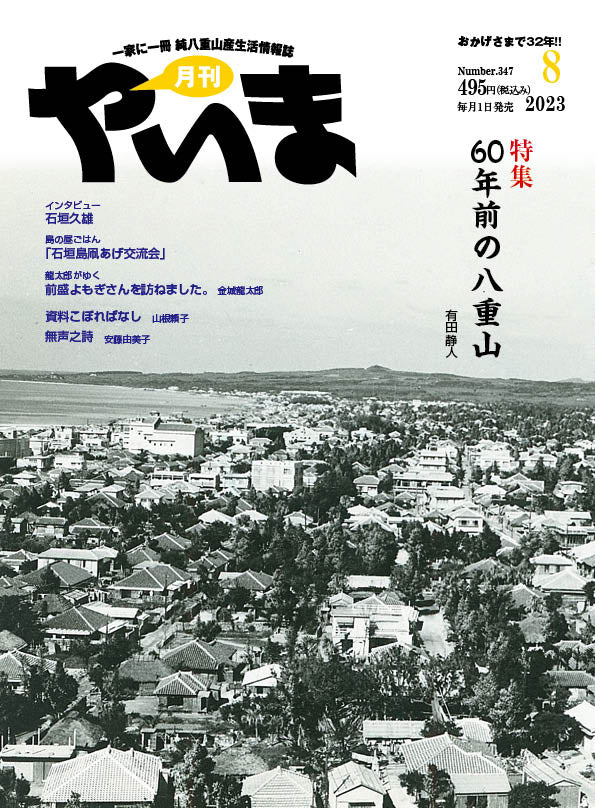
Here's a question! "If there's no water, let's go to the sea♪" - this part of "Ozzy's Pride Orion Beer/BEGIN" has an expression that is different from standard Japanese, but where is it?
By the way, there is also a sentence-ending expression "It's like this" that is often used by people from the mainland when imitating the Okinawan dialect, but that is not what we are going to talk about today. Try looking in one more place. I'll give you a hint. In "National Route 508/BEGIN," the part that goes "Let's load it up in the white truck~♪." Here, too, the same Yaeyama-specific expression as before is used. Did you get it?
The correct answer is in the use of the case particle "ga (here it is called ga case)." In expressions like "Umi ni ga ikusa" and "Tokura ni ga tte ikekou," the case particle + ga case is used. How many Yaeyama people find this strange? Probably most people wouldn't notice. But, you see, this is actually a way of speaking unique to Yaeyama people. It is so distinctive that on the main island of Okinawa, it is pointed out that "people from Ishigaki use 'ga' a lot."
Yaeyama people often use the form "case particle + ga case" such as "Where are you?," "I'm playing at home," and "I'm talking to you." It is also characteristic that "ga case" is added after "verb te form (hold, run, swim)." Roughly speaking, it is thought to be a remnant of the "connective sentence <do>" in the traditional Yaeyama dialect.
I'm sure all native speakers of Yaimayamatomuni can understand the subtle differences between "Where are you?" and "Where are you?", and "I walked" and "I walked and came". By the way, as for the lyrics of Begin at the beginning, I'm sure many people had the melody flowing in their heads just by reading the words. It's amazing, isn't it? Begin. The end.






